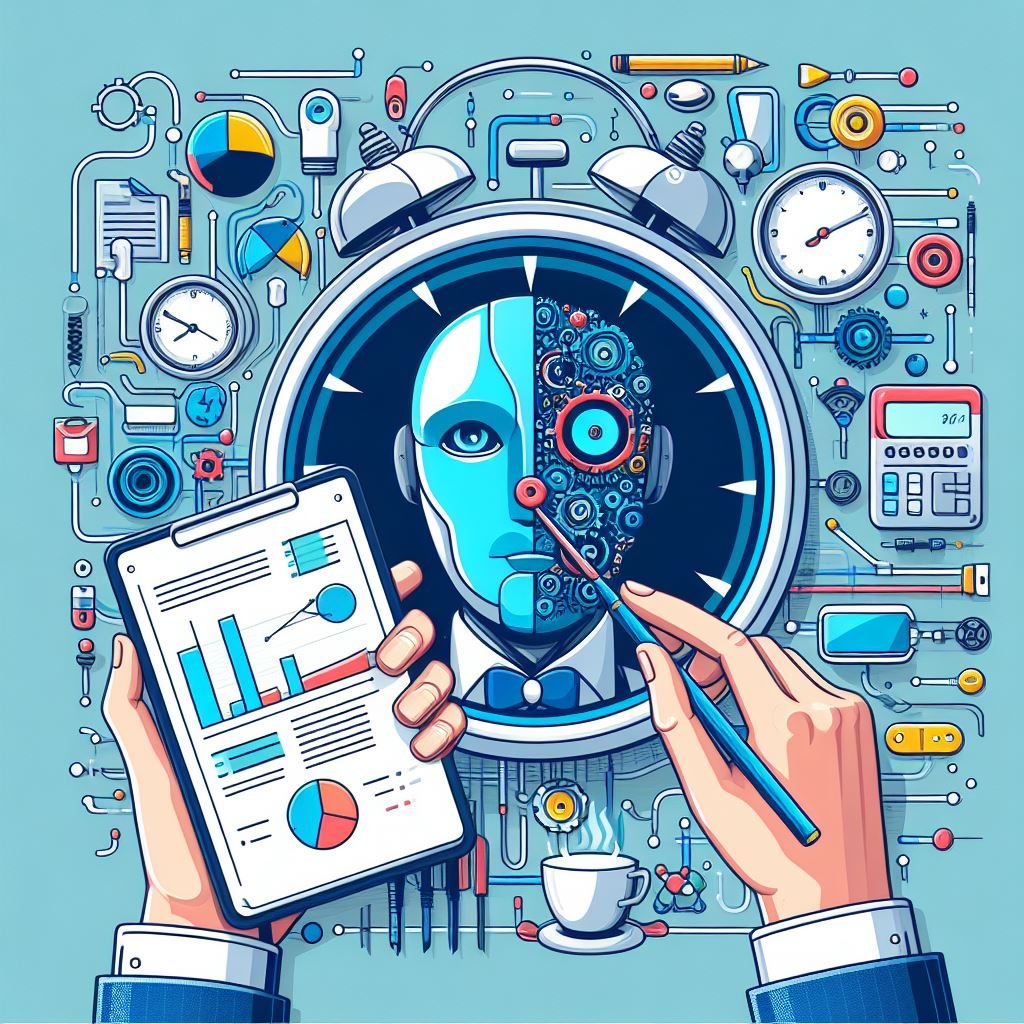Maximizing Efficiency: AI Tools for Effective Time Management

In today's fast-paced world, mastering effective time management is crucial for professionals and businesses alike. It involves strategically organizing tasks to maximize productivity. With the rise of artificial intelligence (AI), we now have powerful tools that revolutionize how we work.
AI offers unprecedented efficiency, acting as a virtual assistant to streamline tasks and keep us on track. Time management is about setting clear goals, breaking them down into manageable steps, and allocating time wisely. By leveraging AI and proven strategies like scheduling and delegation, we can boost productivity and achieve a better work-life balance.
That's why more individuals and organizations are turning to AI for time management solutions.
Time Management
Artificial intelligence covers various technologies that simulate human intelligence to carry out tasks independently. In time management, AI excels at handling large amounts of data, spotting patterns, and making real-time decisions.
By using machine learning, AI tools can adapt to individual preferences, offering personalized recommendations to optimize time use.
Personalized Assistants and Schedulers
AI is widely used in creating personalized assistants and schedulers, like Siri or Google Assistant, which understand user commands through natural language processing (NLP).
These tools can schedule appointments, set reminders, and offer suggestions based on user behavior. Additionally, AI-powered scheduling tools like Clara streamline meeting arrangements by analyzing calendars and availability, reducing administrative tasks.
Task Prioritization and Optimization
In task management, AI provides insights into prioritizing and optimizing tasks. Platforms such as Todoist and Trello use machine learning to categorize tasks, predict deadlines, and suggest efficient workflows.
By considering past behaviors and task relationships, these tools help users focus on important tasks and allocate resources effectively. Project management platforms like Asana and Monday.com automate repetitive tasks, enhance collaboration, and identify potential issues in real-time.
Time Tracking and Analytics
Effective time management requires understanding how time is spent on different activities. AI-powered time tracking tools like RescueTime and Toggl automatically monitor and categorize user activities, providing insights into time usage patterns.
Additionally, analytics platforms like Clockwise and TimeCamp offer advanced reporting to analyze productivity trends and identify areas for improvement across individuals and teams.
Benefits of AI Tools in Time Management
AI-powered time management tools offer several benefits, including:
- Intelligent Scheduling Tools: Algorithms analyze priorities, deadlines, and availability to propose optimal schedules, minimizing conflicts.
- Dynamic Task Management Platforms: Tools adapt to changing priorities, ensuring individuals focus on high-impact activities.
- Personalized Time Allocation Solutions: Systems tailor time management strategies to individual habits, optimizing productivity.
- Streamlined Communication Platforms: Communication tools automate tasks like email filtering, reducing information overload.
- Data-driven Analytics and Insights: Analytics offer insights into productivity patterns, enabling informed decisions for enhanced productivity.
Challenges and Considerations
While AI tools promise to enhance time management, they also present challenges such as these:
- Adoption Hurdles: Initial investment in training and infrastructure may hinder adoption.
- Data Privacy Concerns: AI relies on user data, raising privacy and security concerns.
- Learning Curves: Users may struggle to adapt to AI-driven interfaces, requiring comprehensive training.
- Algorithm Bias: AI algorithms may exhibit biases, necessitating monitoring and mitigation efforts.
- Integration Complexity: Integrating AI tools with existing systems can be complex, requiring careful planning.
Strategies for Maximizing Benefits and Overcoming Challenges
To maximize AI tools' benefits while overcoming challenges, users can:
- Invest in Training and Support
- Prioritize Data Security
- Foster Adaptability and Continuous Learning
- Monitor for Bias and Ensure Fairness
- Seek Seamless Integration and Collaboration
This brings us to the end of the article. Let's wrap it up...
The rise of AI is changing the way we manage time. By using AI tools, we can work more efficiently and get more done. It's becoming increasingly important for both individuals and businesses to embrace these new technologies. However, there are challenges to consider, like learning how to use the tools and making sure our data is safe. By investing in training, focusing on security, and staying flexible, we can make the most of AI while avoiding potential problems. Ultimately, AI offers us the chance to manage our time better and achieve more in our daily lives.
